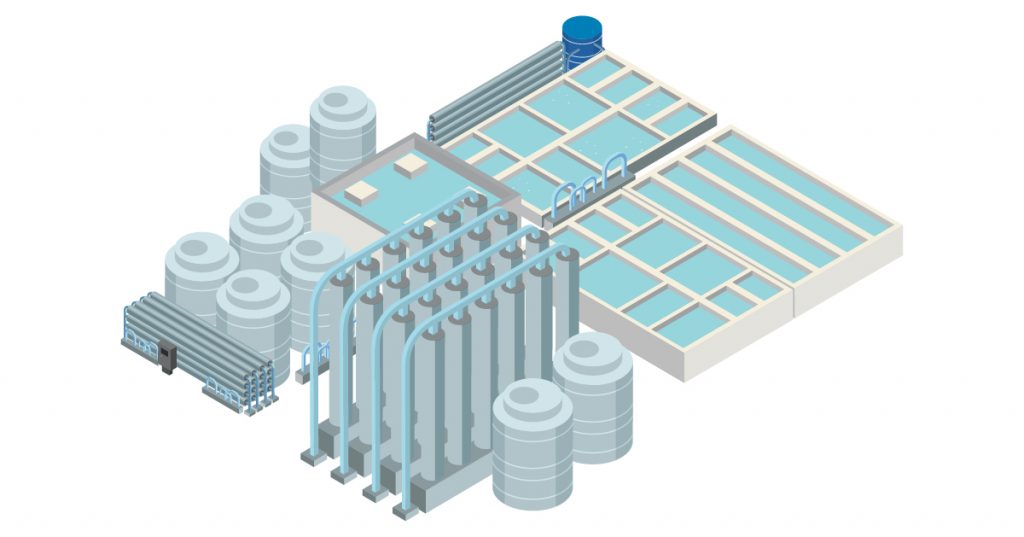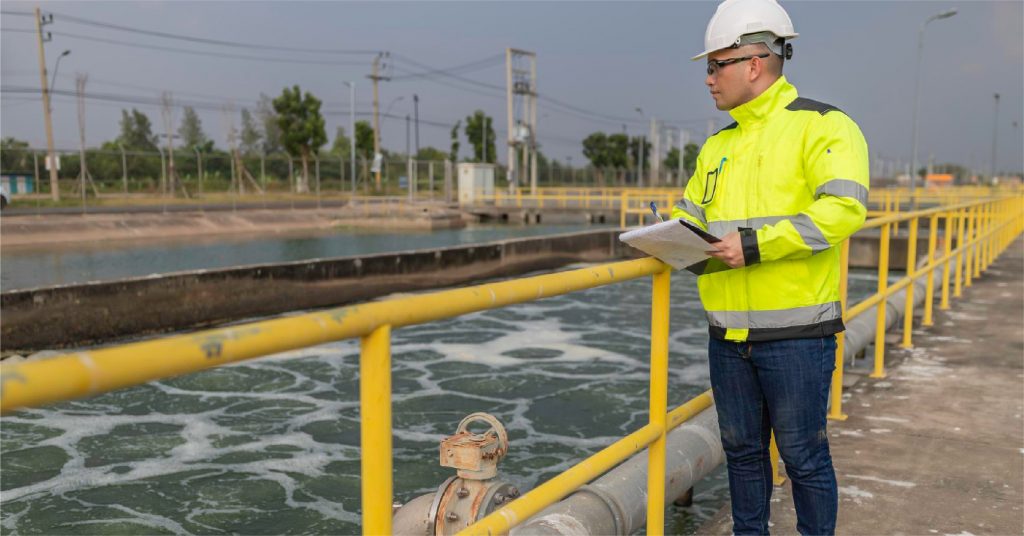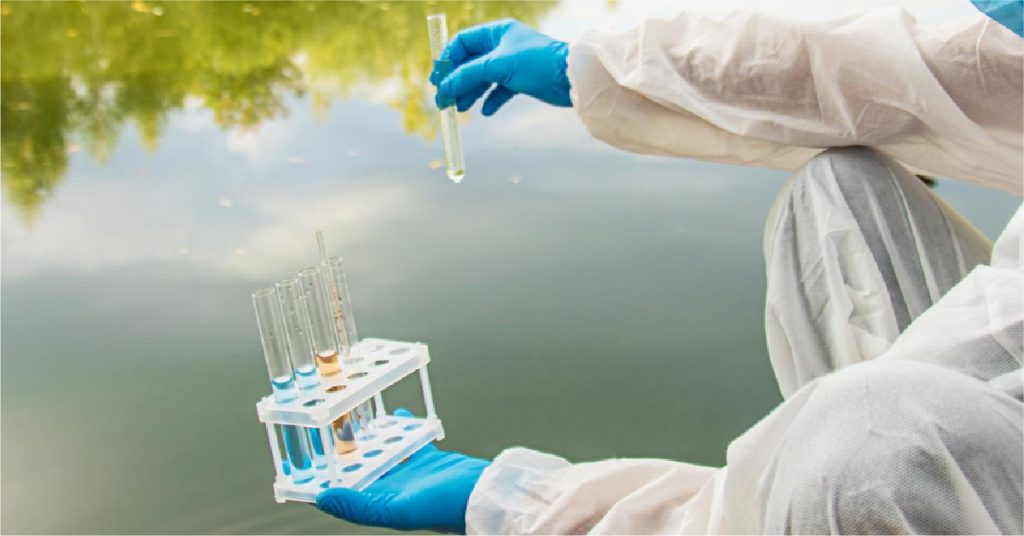Sri Lanka, a tropical island nation, faces significant challenges in ensuring clean and safe water for its population. Despite its great natural water resources, the country deals with water scarcity and contamination due to various factors such as rapid urbanization, agricultural runoff, and inadequate infrastructure. These challenges underscore the importance of advanced water treatment solutions to secure the health and well-being of its citizens. Innovative filtration technology emerges as a crucial component in addressing these issues, providing effective and sustainable solutions to enhance water quality and availability.
What is Filtration in Water Treatment?
Filtration in water treatment refers to the process of removing impurities and contaminants from water by passing it through a permeable material or a series of materials. This method effectively separates suspended particles, microorganisms, and other unwanted substances from water, making it safer for consumption and other uses. Filtration is a fundamental aspect of water treatment, ensuring that the water meets health and safety standards.
What is the Purpose of Filtration in Water Treatment?
The primary purpose of filtration in water treatment is to eliminate impurities and contaminants that can pose health risks or affect the quality of the water. By removing particles such as sediment, bacteria, viruses, and chemical pollutants, filtration helps in:
- Protecting Public Health: Clean water is essential for preventing waterborne diseases and maintaining overall public health.
- Environmental Benefits: Effective water filtration reduces the environmental impact of contaminated water on ecosystems and wildlife.
- Enhancing Water Quality: Filtration improves the taste, odor, and appearance of water, making it more palatable and suitable for various applications.
Innovations in Filtration Technology
Recent advancements in filtration technology have significantly improved the effectiveness and efficiency of water treatment processes. Some of the notable innovations include:
- Nanofiltration: This technology uses membranes with nanometer-sized pores to selectively remove smaller contaminants, including organic molecules and multivalent ions, while allowing monovalent ions to pass through. It offers a balance between high rejection rates and low energy consumption.
- Advanced Membrane Technologies: Developments in membrane materials and structures have enhanced their durability and permeability. These advancements enable more effective filtration at lower operating pressures, reducing energy costs and extending the lifespan of the membranes.
- Smart Filtration Systems: Integration of sensors and IoT technologies allows real-time monitoring and control of the filtration process in water treatment. These systems can detect changes in water quality and automatically adjust filtration parameters to maintain optimal performance.
Benefits of Modern Filtration Technologies
-
- Enhanced Efficiency: Modern filtration technologies can remove a broader range of contaminants more effectively than traditional methods.
- Cost-Effectiveness: Advanced systems often require less energy and maintenance, resulting in lower operational costs.
- Sustainability: New filtration methods are designed to be more environmentally friendly, reducing waste and conserving resources.
Ion Exchange: Leading Innovations in Filtration Technology for Water Treatment
Ion Exchange Filters are categorized into pressure filters and gravity filters based on the method of water flow, either under pressure or by gravity, through the filter media. These filters utilize various materials, such as fine or coarse sand, anthracite, garnet, and granular activated carbon, as the filtering media.
-
-
- INDION Continuous Sand Filters features a unique continuous operation and automatic backwashing system. This makes them an excellent choice for water and wastewater treatment across a wide range of industries. The filters offer a compact and modular design, allowing for easy installation and maintenance, which enhances their suitability for various industrial applications. Their versatile applications include potable water treatment, industrial process water treatment, and tertiary wastewater treatment, offering flexibility across different sectors. These filters are commonly used in municipal water treatment to enhance water quality, in industrial settings to improve process water quality, and in wastewater treatment to facilitate tertiary treatment and nutrient removal.
-
- INDION Multigrade Filters Pressure offers an efficient solution with its high flow rates and consistent water quality. These filters are engineered to deliver superior filtration performance with a low-pressure drop, minimizing energy consumption and operational costs. Built with durable materials, they are designed to withstand challenging operating conditions, ensuring a long service life. They are versatile and find applications in several sectors, including industrial water treatment, municipal water purification, and desalination pre-treatment, making them a reliable choice for maintaining water quality standards in diverse environments.
-
- INDION New Generation Multigrade Filters (NGMF) series are designed to efficiently remove suspended solids and turbidity from feed water that has been coagulated and clarified. These filters can handle a maximum flow of 35 m³/h, making them suitable for various industrial applications. Aesthetically designed, lightweight, and easy to install, the NGMF series requires no special foundation, enhancing their versatility and appeal. Constructed from durable plastic materials, the pressure vessel is made of fiber-reinforced plastic (FRP), while the pipework is constructed from polyvinyl chloride (PVC), ensuring robust performance and longevity. The filters are equipped with a single multi-port valve operated by a hand lever for user-friendly operation. To maintain optimal performance, the filters feature a backwashing mechanism that reverses the flow whenever the pressure drop across the unit exceeds a specified limit, ensuring the system remains efficient and reliable over time.
-
- INDION Activated Carbon Filters are designed to effectively remove free residual chlorine (FRC) from feed water using granular activated carbon as the filter media. These filters are capable of treating feed water at flow rates of up to 170 m³/h. For specialized applications requiring the removal of odors, organic matter, and traces of oil, peat-based activated carbon with larger pores can be provided upon request. Key features of these filters include their compact design for easy installation and maintenance, tolerance to variations in chlorine levels, and built-in pressure gauges for monitoring. The filters are ideal for use in demineralizing and reverse osmosis units and for the removal of contaminants, making them versatile solutions for various industrial applications.
-
Conclusion
The importance of filtration in water treatment cannot be overstated. It plays a critical role in ensuring access to clean and safe water, protecting public health, and preserving the environment. In Sri Lanka, innovative filtration technologies offer promising solutions to the country’s water treatment challenges. By embracing these advancements, Sri Lanka can significantly improve its water quality and secure a healthier future for its population.





